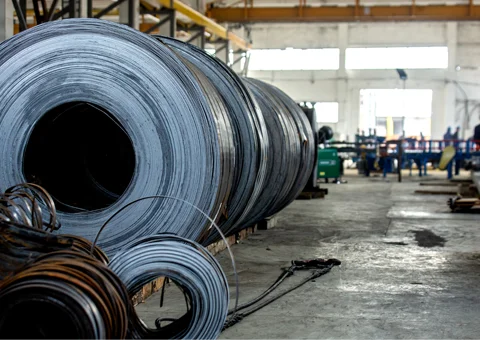The Chinese steel industry is going through a “winter”, according to the head of the world’s largest steel producer, with analysts warning the sector – vital for capesize owners – faces prolonged decline.
Steel production in July dropped by 9% year-on-year reaching 82.9m tonnes according to the National Bureau of Statistics, the lowest figure reported in 2024. Generally Chinese steel production has slowed in 2024 and is year-to-date 2.2% behind 2023 numbers.
The decline is driven, according to a new report from Greece’s Ursa Shipbrokers, by weak demand, reduced profitability for mills, and government directives to keep annual production growth at zero.
Ursa analysts note that only 5% of Chinese steel producers are currently profitable, as steel prices have dropped significantly, with rebar futures hitting a four-year low.
The prolonged slump in China’s property sector, with a 10.2% drop in investment, has heavily impacted steel demand.
Hu Wangming, chairman of the world’s largest steel producer, state-owned Baowu Steel, recently said the steel industry was going through a “winter,” adding that the industry was in the midst of a long-term adjustment period.
Following weaker domestic demand, Chinese steel producers are searching for new markets. In the first half of 2024 China increased exports by 24% year-on-year, and industry experts believe exports will grow 27% in 2024.
China’s steel exports have “flooded” global markets, according to a recent report from MB Shipbrokers, which has led to a 26% year-on-year drop in global steel prices. Consequently, many countries are now imposing restrictions to protect their domestic producers, raising doubts about whether China’s high export levels can be sustained.
“With weak domestic steel demand, high iron ore inventories, and concerns about the future of steel exports, iron ore imports could face a correction in the near future,” MB Shipbrokers warned, something that could have a negative impact on capesize freight for the rest of the year.
Excavator sales in China are expected to be down 8% year on year for fiscal year 2024, Citi wrote in an August note. Excavator sales are usually seen as a leading indicator of construction activity, and by extension, metals demand.
Despite the headwinds facing the property and steel sectors in China, capes have been trading in a narrow, profitable range of between $19,000 and just over $23,000 over the past month.
This comes despite a weakening steel market globally, with Chinese hot-rolled prices falling from $500 a ton to $450 a ton since mid-July.
“The softer steel prices have impacted iron ore prices as well though seaborne cargo movements remain elevated. This is due in part to much lower China domestic iron ore production recently,” analysts at investment bank Jefferies noted.
Courtesy: plash247.com

